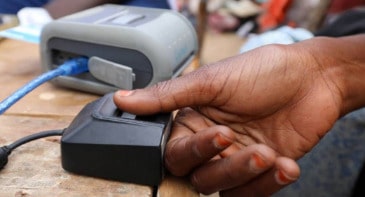Funds which the Zambian government had budgeted for the country’s digital ID project is now being channelled into efforts aimed at responding to a drought emergency orchestrating hunger in the Southern African country.
This update was given recently to the country’s lawmakers by the Minister of Home Affairs and Internal Security, Jacob Mwiimbu, who is quoted by ITWeb as saying that the $80 million budgeted for the digital ID scheme will now be spent on addressing the effects of the severe drought, namely taking measures to reverse the risk of severe hunger among households.
Th droughts are also affecting other neighbouring countries such as Malawi and Zimbabwe whose governments have declared a state of disaster over the devastating floods.
Explaining the situation, Mwiimbu said President Hakainde Hichelema had directed that the government realigns its budget as part of efforts to provide life-saving interventions to citizens bearing the brunt of the natural calamity.
He was quoted as telling the lawmakers that the decision had to be made in response to the “destruction caused by the prolonged dry spell” which “threatens national food security, as well as water and energy supply.”
Zambia launched the production rollout (phase 2) of the Integrated National Registration Information System (INRIS) project in 2022, meant to enroll millions of citizens for a national digital ID card as one of the ways of accelerating the country’s digital government and digital transformation plans. The project is run by the Department of National Registration, Passport, and Citizenship, and overseen by the Presidential Delivery Unit (PDU). It is funded by the government of Japan through UNDP Zambia, and developed by Dermalog.
Over one million persons have already been registered in the INRIS as of September 2023, and the government has projected to issue digital ID to at least 10 million citizens in the next ten years.
In 2020, a World Bank digital economy diagnostic report on Zambia titled “Accelerating digital transformation in Zambia” noted that improved access to digital technologies and effective use of data and digital systems can be powerful tools in the country’s quest to increase private sector productivity, enhance public sector efficiency and effectiveness, and improve the accountability of both the public and private sectors.
Article: Zambian govt doesn’t want to see hungry citizens enroll for digital ID
